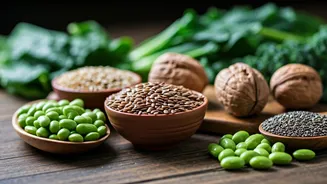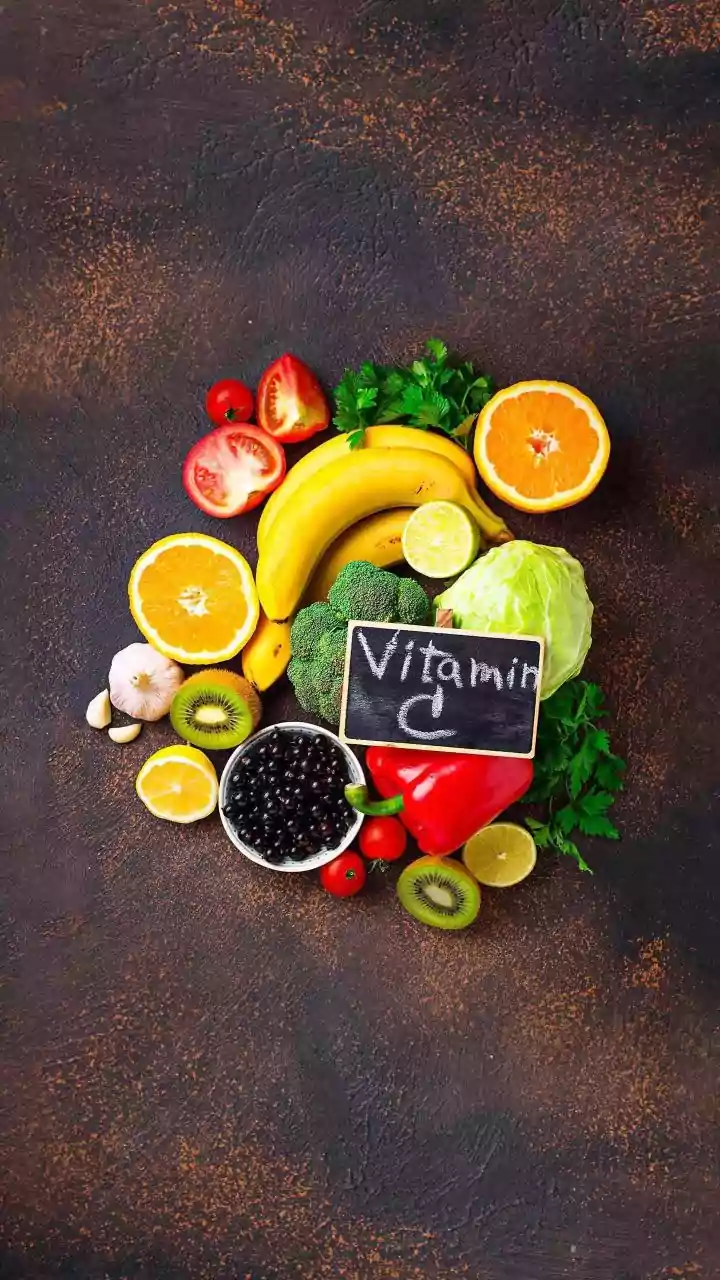Introduction to Omega-3s
Omega-3 fatty acids are essential fats that your body cannot produce on its own, making it crucial to obtain them through your diet. These fats are renowned
for their profound impact on heart health. They help to reduce the risk of heart disease by lowering triglycerides, reducing blood pressure, and preventing the formation of blood clots. There are several types of Omega-3s, including ALA (alpha-linolenic acid), EPA (eicosapentaenoic acid), and DHA (docosahexaenoic acid). While EPA and DHA are primarily found in fish, ALA is present in plant-based sources. ALA is converted to EPA and DHA in the body, although the conversion rate can be limited. Therefore, incorporating a variety of ALA-rich foods into your diet is essential for vegetarian heart health.
Flaxseeds: Powerhouse of ALA
Flaxseeds are at the top of the list for vegetarian Omega-3 sources. They are incredibly rich in ALA, making them an excellent choice for heart health. Flaxseeds also offer a good dose of fiber, which aids in lowering cholesterol levels. Incorporating flaxseeds into your diet is very easy. You can sprinkle ground flaxseeds onto your cereal, add them to smoothies, or use them in baked goods. It is crucial to consume ground flaxseeds rather than whole ones, as the body can absorb nutrients from the ground form more efficiently. One tablespoon of ground flaxseeds provides approximately 1.8 grams of ALA, making them a simple and effective addition to your daily meals. Regular consumption may assist with reducing inflammation and support overall cardiovascular wellness.
Chia Seeds: Tiny Wonders
Chia seeds are another nutritional powerhouse rich in ALA. These tiny seeds offer a significant amount of Omega-3 fatty acids, along with fiber and antioxidants. Similar to flaxseeds, chia seeds are a versatile ingredient that can be included in various meals. You can add them to yogurt, oatmeal, or even use them to make chia seed pudding. They also have a unique ability to absorb water, forming a gel-like consistency. This can help with satiety, potentially aiding in weight management, which in turn benefits heart health. Approximately one ounce (about two tablespoons) of chia seeds contains about 5 grams of ALA. This makes chia seeds a convenient and effective way to boost your Omega-3 intake and support your heart.
Walnuts: Nutty Goodness
Walnuts are a delicious and readily available source of Omega-3 fatty acids. They provide a good amount of ALA and other essential nutrients, including antioxidants and minerals. Eating a handful of walnuts daily can contribute significantly to your Omega-3 intake and provide additional health benefits. Walnuts are linked to improved cholesterol levels, reduced inflammation, and better arterial function. They are easy to consume as a snack or can be added to salads, cereals, and various dishes. About one ounce of walnuts (approximately 14 halves) provides roughly 2.5 grams of ALA, making them a tasty and effective choice for heart health. They also support brain function and offer a range of health benefits.
Hemp Seeds: Complete Protein
Hemp seeds are a complete protein source, offering all nine essential amino acids, alongside a good dose of ALA. These seeds also provide other vital nutrients like magnesium, iron, and zinc. Hemp seeds have a slightly nutty flavor and can be incorporated into many meals, such as smoothies, salads, or sprinkled on top of your meals. The presence of both Omega-3 and Omega-6 fatty acids in hemp seeds contributes to a balanced intake of essential fats. They can help with improving the ratio of these fats. Three tablespoons of hemp seeds contain about 1.2 grams of ALA. Including hemp seeds in your diet supports cardiovascular health and provides several other benefits, including healthy skin and enhanced immune function.
Soybeans: Versatile Choice
Soybeans are a versatile and easily accessible vegetarian food rich in ALA. Soybeans and soy products, such as tofu and edamame, are a great way to add Omega-3s to your diet. They are also a good source of protein and fiber, making them a nutritious choice for heart health. Soybeans have been linked to improved cholesterol levels and a reduced risk of heart disease. You can enjoy them as edamame, add them to stir-fries, or use soy products like tofu in a variety of dishes. About half a cup of cooked soybeans provides about 0.5 grams of ALA. This makes soybeans a simple yet efficient way to support heart health and enjoy a variety of delicious meals.
Edamame: Nutritious Snack
Edamame, or young soybeans, are an excellent snack and also a great source of Omega-3 fatty acids. Besides ALA, edamame is also rich in protein and fiber, making it a very nutritious and filling option. Eating edamame has been linked to better cholesterol levels and heart health, contributing to improved cardiovascular wellness. You can enjoy edamame as a snack, add them to salads, or use them in various Asian-inspired dishes. About one cup of cooked edamame provides roughly 0.3 grams of ALA. Including edamame in your diet is an easy and delicious method to boost your Omega-3 intake and help maintain good heart health.
Seaweed: Oceanic Benefits
Seaweed, particularly nori, is a surprising source of ALA and is a great option for vegetarians. Seaweed is a nutrient-dense food that also provides iodine, which is crucial for thyroid health. Consuming seaweed has been linked to improved cholesterol levels and heart health. You can add nori sheets to your sushi rolls or use seaweed flakes to season your salads and soups. While the ALA content in seaweed can vary, including it in your diet can be a great way to support your heart health and ensure you're getting some essential nutrients. This makes seaweed a beneficial addition to a heart-healthy vegetarian diet.
Canola Oil: Cooking Companion
Canola oil is a versatile cooking oil that is a good source of ALA. Using canola oil in place of other cooking oils can increase your intake of Omega-3 fatty acids, and it provides a neutral flavor that works well in a variety of dishes. Canola oil can assist in lowering bad cholesterol levels and boost heart health when consumed in moderation. You can use it for sautéing, frying, or baking, which makes it a practical option for everyday use. One tablespoon of canola oil contains about 1.3 grams of ALA. Including canola oil in your cooking can easily help in the effort to support your heart health.
Brussels Sprouts: Green Goodness
Brussels sprouts are a nutritious vegetable that contains a small amount of ALA. Besides Omega-3s, Brussels sprouts are also rich in fiber, vitamins, and antioxidants, contributing to overall health. Eating Brussels sprouts can help in lowering cholesterol levels and providing other benefits linked to heart health. You can roast them, steam them, or add them to salads. Approximately one cup of cooked Brussels sprouts provides around 0.2 grams of ALA. While the ALA content is lower compared to other sources, incorporating Brussels sprouts into your diet is still a great way to support your heart health and boost your overall nutrient intake. They offer a simple way to add some variety to your meals while contributing to a healthy lifestyle.












![[WATCH] 'Real Madrid, Ramadan and rest' - Mohammed Siraj how last-minute World Cup call-up changed February plan](https://g-mob.glance-cdn.com/public/fc/image/ByYT_LEmlrD0.webp)








